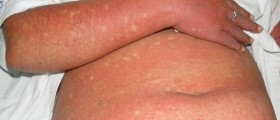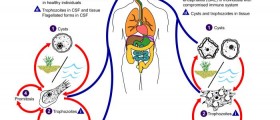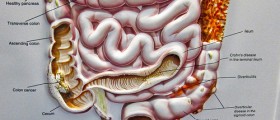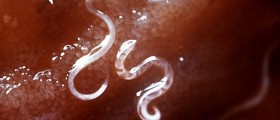
Giardiasis is an infection affecting the gastrointestinal tract, to be more precise the small intestine. The infection is caused by a microscopic organism, protozoa called Giardia lamblia. This protozoa can easily lodge within the delicate lining of the small intestine. It interferes in adequate absorption of fats and carbohydrates. The infection is accompanied by mild to severe diarrhea.
Giardiasis Causes and Risk Factors
Giardiasis affects both the developed world and developing countries. The only predisposing factor which must be fulfilled is water contamination with the parasite. The presence of the parasite in water is usually associated with raw sewage contamination.
It is also possible to contract the infection by drinking water from lakes or streams contaminated by feces of different animals such as beavers and muskrats. The infection is additionally spread via direct inter-human contact.
Risk is increased in individuals who travel to endemic countries as well as campers who drink previously not treated water from streams or lakes. Furthermore, inter-human transmission is possible in family members or in institutions like day care or nursing homes. Even unprotected anal sex may be a way of disease transmission.
Giardiasis Clinical Characteristics
Patients suffering from giardiasis typically experience loss of appetite, nausea, vomiting, abdominal pain, gas and diarrhea. Headache and low-grade fever are two more characteristics of the disease. The stomach may be distended and one feels bloated.
The incubation period for giardiasis is between 7 and 14 days. The acute phase of the diseases never lingers longer than 2-4 weeks.
Diagnosing Giardiasis
Patients with giardiasis may undergo different tests and exams. For instance, the parasite can be confirmed with stool antigen test, stool ova and parasite exam and sometimes enteroscopy. String test is not so frequently performed but can be of additional help. Finally, the parasite can be confirmed with D-xylose absorption, small intestine tissue biopsy and smear of duodenal aspirated fluid.
Giardiasis Treatment
In a certain number of patients with giardiasis, symptoms and signs of the infection withdraw on their own. However, others require anti-infective medicines. Even though drug resistance may occur, medicamentous treatment is generally successful. Pregnant women must not be treated with anti-infective drugs until they give birth to their child since these drugs can be harmful for the baby.
Even though giardiasis is most commonly completely eradicated, the infection may persist. If the condition is severe and especially if it is neglected, patients may develop some complication like dehydration, malabsorption, weight loss, bloody stools etc.















_f_280x120.jpg)

Your thoughts on this
Loading...